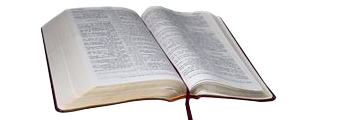
CHURCH OF THE BRETHREN NETWORK
Continuing the work of Jesus : Peacefully ~ Simply ~ Together
UNOFFICIAL WEBSITE OF THE CHURCH OF THE BRETHREN

 |
CHURCH OF THE BRETHREN NETWORK Continuing the work of Jesus : Peacefully ~ Simply ~ Together UNOFFICIAL WEBSITE OF THE CHURCH OF THE BRETHREN |
 |
 |
 |
 |
Memorial Service
Proclamation for the Ted Studebaker Memorial
Monday, May 3, 1971
7 o'clock p.m.
West Milton Church of the Brethren
Phillip K. Bradley, Pastor
The poet has written:
When through one man
A little more love and goodness,
A little more light and truth
Come into the world,
Then, that man's life has had meaning.
(Alfred Delp)
How well these words describe Ted's life.
So many times in tragedy, we ask "why?" Not so for those who understood and loved Ted. The question is answered before it is raised: He chose to be there, to give himself for a people and a purpose and a peace. About going to Vietnam, Ted Said: "Cool it and don't fret on it; this boy knows what he's doing."
Who can unlock the meaning at the heart of such a life? This we know: such a life motivates others to nobler actions so that men eventually need not ask about death-why?, but instead, why not?
In "The Prophet," Kahil Gibran, we read about death: "You would know the secret of death, but how shall you find it unless you seek it in the very heart of life?"
It is in the very heart of Ted's life that you will find those values, those priorities worth his dying for. His love for all people spirited him to live and serve with his head, his heart and his finger tips. His heart ached as he saw about him man's inhumanity to man and that which dehumanizes most, war. "The dehumanizing process of war concerns me deeply," he said. He asked, "What can I do about man's inhumanity to man?"
If any man's life is to have integrity and meaning, he must take a stand. Ted did. He was a conscientious objector. He gratefully acknowledged and gave credit for his convictions to his family background, his Christian upbringing in the Church of the Brethren and others who are presently taking a stand for peace.
At the heart of Ted's life was a vision of Christ as the example to strive toward. Jesus was a mover, Ted once said, meaning that he traveled and wherever he traveled he helped people in need. Jesus was not one who called us to spend life in self-contemplation or even in meditation and prayer. Jesus called us to be movers.
Ted was a mover. He said of his faith: "If friendship really is the biggest problem of life, then what the world needs is more dedicated people to witness and follow Christ's example. More people need to help feed the hungry, to heal the sick, to shelter the homeless, to give their time, knowledge and ability and to share unselfish love and concern for others." He lived out his convictions. The warm smile of friendship can do much to restore some of our lost faith in humanity.
The banner at the worship center affirms Ted's celebration of life. He lived every day - every moment - every opportunity. In Vietnam he had time to talk to anyone who came to him; he had time to help them in any way.
Though Ted signed many of his personal letters "Life is great, yea!" such an affirmation did not mean that with rosy-tinted glasses we can shut out the ugly brutality, the deprivation and the injustice in the world. It means experiencing the other man's situation. Such meaning comes to those who know how to read the signs; to see the great joy of living is to see more deeply its sorrow. Joy and sorrow are inseparable. "When you are joyous, look deep into your heart and you shall find it is only that which has given you sorrow that is your joy."
"When you are sorrowful, look again into your heart and you shall see that in truth you are weeping for that which has been your delight. Some of you say, "Joy is greater than sorrow,' and others say, 'Nay, sorrow is greater.' But I say unto you, they are inseparable." To look at life and not see its sorrows is to see men as trees walking. One must see man's plight and promise, sorrow and joy to say "yes" to life. Only one feat is possible-not to run away.
Ted saw both the agony and the ecstasy of life, both the grandeur and the misery of man, both the joy and sorrow in life. He read the signs well. He wrote: "I do believe that the best way out of trouble is through it; and that there is no greater immorality than to occupy a place you cannot fill, and that if I fear God, I need not fear any man>: To say "yea" to life is at one and the same time to say "yea" to oneself. It is to say "yes" to who you are, male or female; it is to discipline yourself for your mission in life. He said yes to the values and love of his family background. He said yes to his church "for helping to shape me into the kind of person I want to be. I value highly my upbringing in the Church of the Brethren, especially my acquired beliefs of our pacifistic stand.
He said yes to God-he looked at Christ, his mission on earth, his teachings, his actions, his example-all He stood for and said "That's for me."
He said yes to a young Chinese girl-"Just the best thing that ever happened to me, and her too, she says. I've never known such a real and honest person as Pakdy; humble, too, by golly! there just isn't any other way, John, war or no war, I'm getting married. YIPPEE!!"
He said yes to his world, "Even though," he wrote, "I have never heard of a president pinning a medal of honor on a pacifist. These are the sacred glories reserved for those who can kill, maim, capture or destroy the most and the more human lives involved, the more glorious the award seems to be. What a contradiction of values! How can a great society be so inconsistent and incoherent!"
He said yes to those who disagreed with his pacifistic views. He wrote to such a person a few hours before his death..."Just one point I want to make clear to you. I do not 'feel the enemy is right' any more than I feel the U.S. military is right in being here. I believe strongly in trying to follow the example of Jesus Christ as best I know how. Above all, Christ taught me to love all people, including enemies, and to return good for evil, and that all men are brothers in Christ. I condemn all war and conscientiously refuse to take part in it in any active or violent way. I believe love is a stronger and more enduring power than hatred for my fellow man, regardless of who they are or what they believe."
"You probably thing I'm pretty idealistic and by your letter indicate that I'm a pretty mixed-up kid. but I cannot apologize for any part of the letter I wrote my church, since it well represented honestly and sincerely my feelings and concerns about this particular situation. I have tried to speak from both experience and reason, not from mere emotion or hearsay."
"I do appreciate you letter for reasons you'll probably never know. I hope that reason and understanding and wisdom will guide our thoughts and actions in whatever we think or do. Thank you for inquiring about my safety. Please know that I am in excellent health and adequate security. I know I am a fortunate man and life is great to me."
"You would know the secret of death? how shall you find it unless you seek it in the very heart of life." Your own life. We have looked into the very center of Ted's life. We found one whose love said "Life is great, Yea!" How can we but look into our own lives and ask...are you genuine? or merely an actor? a representative? or that which is represented? In the end, perhaps you are merely a copy of an actor. Are you one who looks on? or one who lends a hand? or one who looks away and walks off? Do you want to walk along? or walk ahead? or walk by yourself?
One must know what one wants and that one wants. (Nietzche) There once was a man who walked into the center of the world's misery. He went to the dangerous city of Jerusalem to bring sight to the blind, healing to the lame, a word of hope, a cup of cold water, peace among men. He took a stand and told his hearers, "Love your enemies and pray for those who persecute you." He told them, "Blessed are the peacemakers for they shall be called the sons of God." He called them to let go of their lives for one another that they might find life. They murdered him on a cross outside a strange city. but not his spirit. That spirit blows where it wills-it touches the hearts and minds of those who even in this very moment say yes to their lives and follow Him; those who act without concern for medals, who dissent from despair, who say yes to life and walk beside their brother.
Because Jesus Christ is the resurrection and the life, those who say yes to their won lives take on eternal dimension.
Ted had a great hope for peace. He said, "Here I stand, God helping me, I can do no other."
You dare your yes--
and experience a meaning.
You repeat your yes--
and all things acquire a meaning.
When everything has a meaning,
How can you live anything but a Yes.
(Dag Hammerskjold, "Markings"

